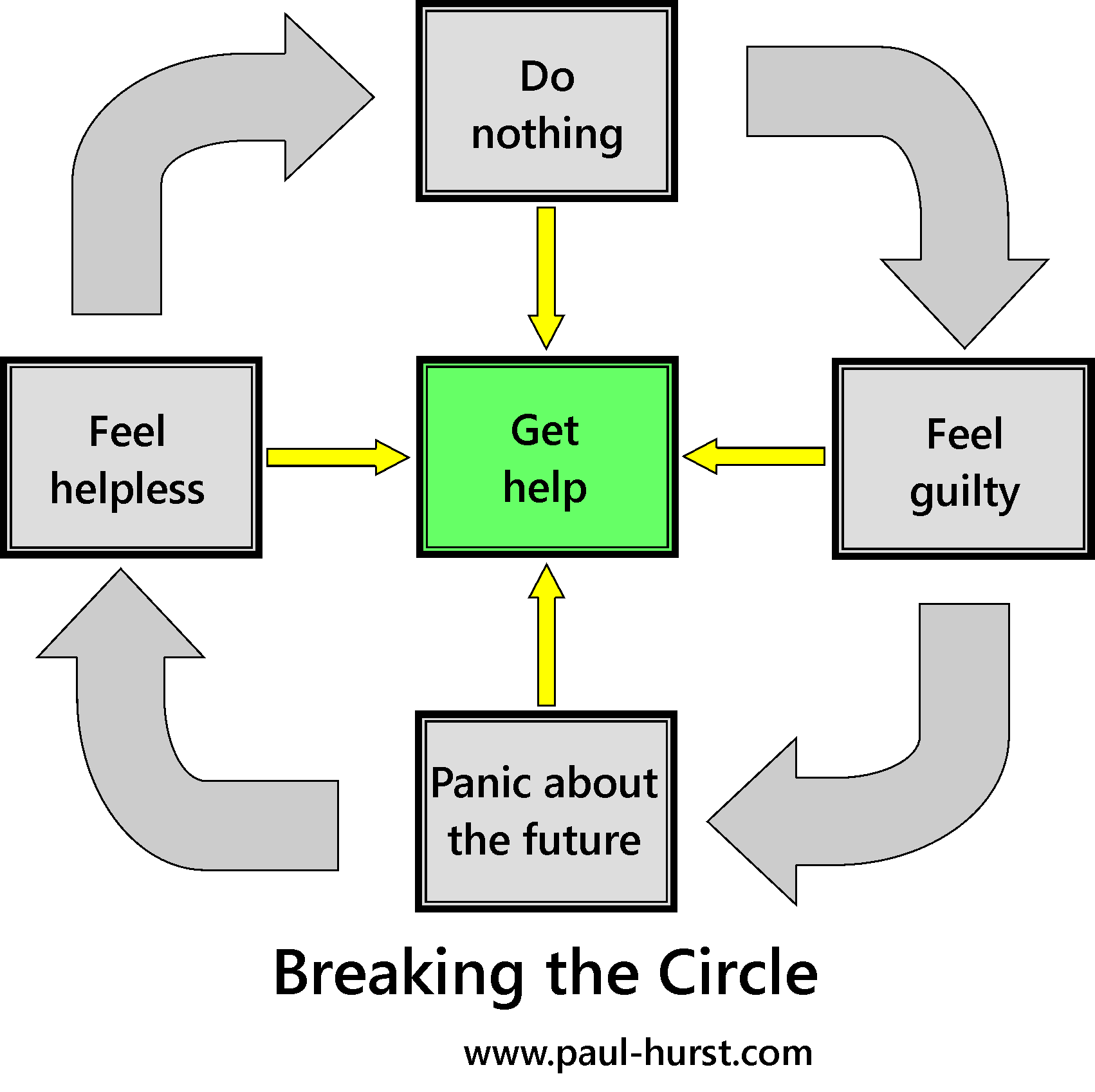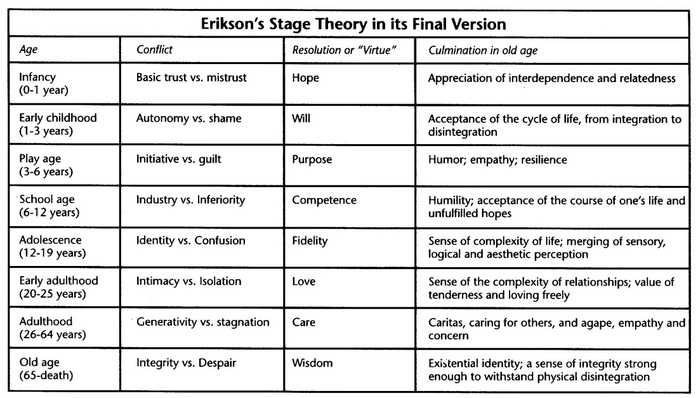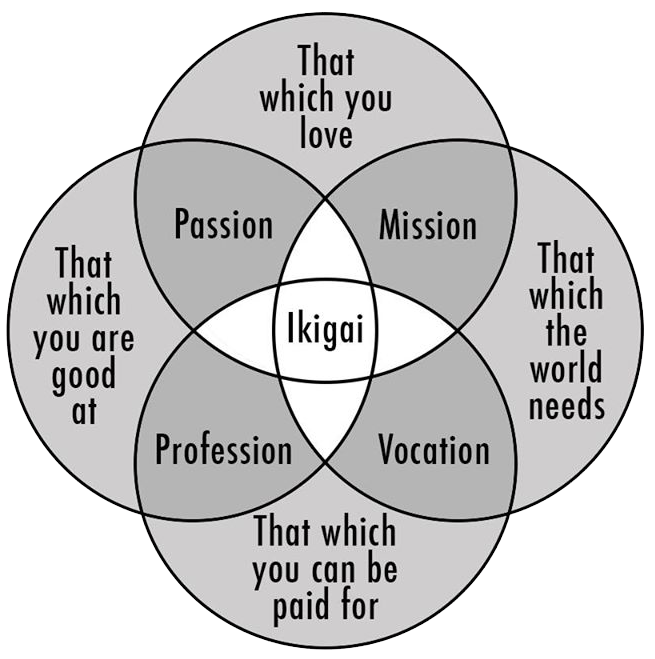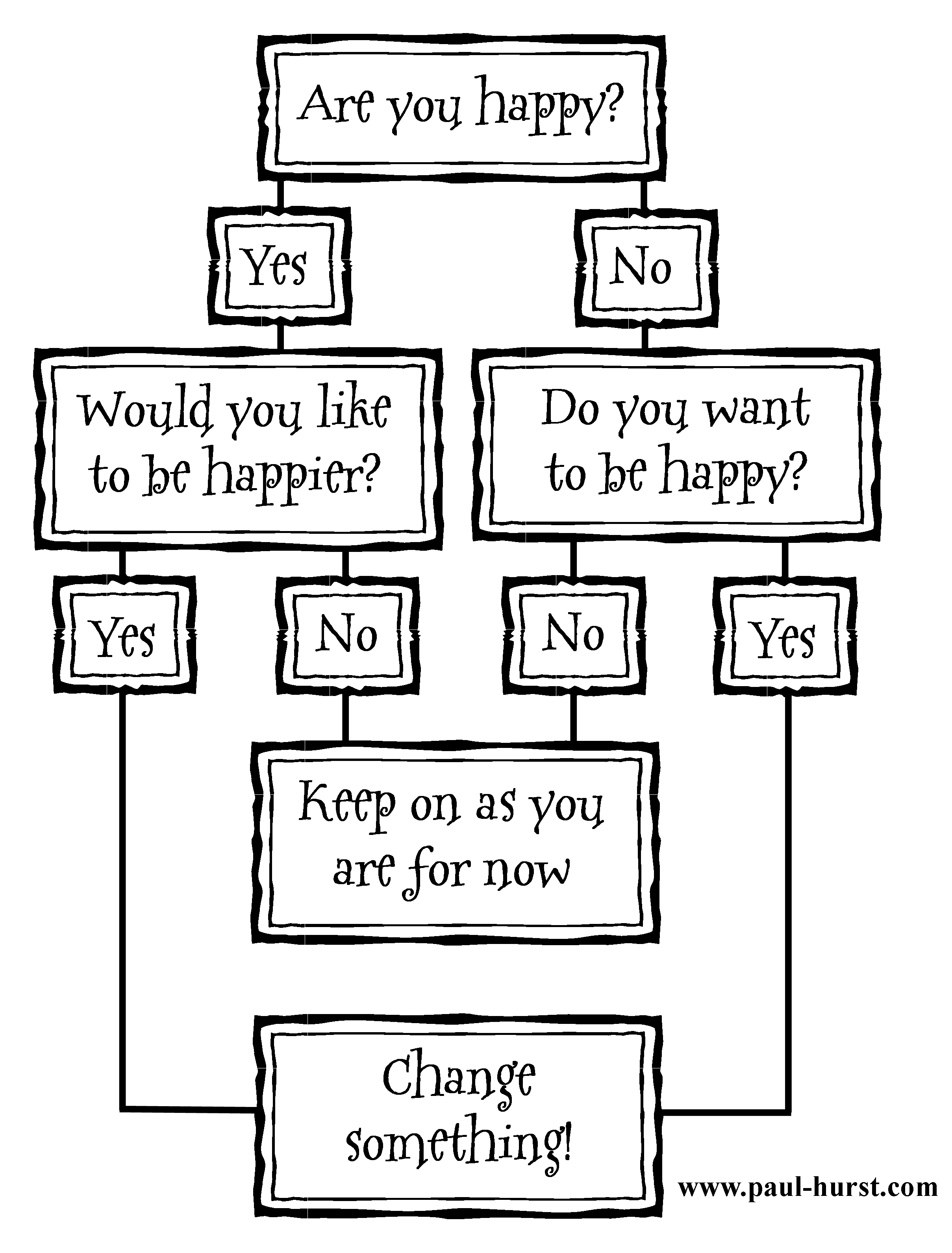Are you stuck?
Counselling and psychotherapy can offer more than just helping those suffering from loss, anxiety, distress or depression. It can also help those who feel stuck - who have a dissatisfaction with their life, little or no sense of direction or purpose. Whilst therapists do not seek to provide a list of 'why don't you' options or even instructions on how to change your life, we can help you discover and put into words answers that are already within you. My additional training and experience as a Humanist (non-religious) pastoral carer has helped me to understand, and help with a broader range of the challenges that can happen through life.
Ultimately, you are the best expert on yourself. Others are often frequently more than willing to give plentiful advice on how to live your life but these will be based on their life, their experiences and personality type, on their goals and targets. Your ideal path is quite likely to be different to theirs, drawing on different skills and abilities.
We may be too close to a challenge and 'unable to see the wood for the trees.' A suitably trained and experienced therapist can help by noticing and reflecting issues that may be out of the conscious awareness of a client.
Breaking the cycle

Erik Erickson's stages of life
Erickson continued to develop a theory of life stages that we all go through, here is his final version:

As I only work with adults, I've concentrated here on the last three - these are the changes in life where clients may have trouble finding meaning in their life, or adjusting to a new role:
Early Adulthood
Following the turbulence of adolescence, now is the time when it is important to form loving, intimate relationships with others - be they friends, family, children and partners or social/work groups. Failing to do this can lead to loneliness and isolation.
Adulthood
A time when there is a need to establish a legacy, to create or nurture whatever will come after us ('Generativity.) There is a focus on parenthood and work, and a drive to feel useful and accomplished in order to maintain a feeling of being involved in the world - avoiding stagnation.
Every one will have a different personal experience, although I was once told that there are three inescapable things that happen to middle-aged men,
1) We start moaning a lot more
2) We reach a cross over point, with more hair on our bums than our heads
3) We want to buy a sports car
Old age
Winding down a bit - reflection and the achievement of a sense of fulfilment. Gaining this can lead to a perception of wisdom, whilst a failure to do so can prompt feelings of regret, bitterness and despair.
Various writers have suggested a continuing drive throughout life to move towards a sense of fulfilment and enlightenment - rejecting the influence of others and acting authentically.
Whether we are seeking self-actualisation (Rogers and Maslow), autonomy (Berne) or enlightenment, or just stuck with a changing stage in our life, there may be times when we need a bit of help to overcome the odd hiccup in the journey.
Ikigai
Ikigai is a Japanese concept meaning "a reason to get up in the morning", that is, a reason to enjoy life. Everyone, according to the Japanese, has an ikigai. Finding it requires a deep and often lengthy search of self. Such a search is regarded as being very important, since it is believed that discovery of one's ikigai brings satisfaction and meaning to life.
The word "ikigai" is usually used to indicate the source of value in one's life or the things that make one's life worthwhile. Secondly, the word is used to to refer to mental and spiritual circumstances under which individuals feel that their lives are valuable. It's not necessarily linked to the economic status or today state of things. Even if a person feels that today's dark, but has a goal, he may feel ikigai. Behaviours that make one feel ikigai are not actions which individuals are forced to take - these are natural and spontaneous actions.
The term "ikigai" is composed of two Chinese characters : iki and kai. Iki refers to life and kai is a suffix meaning roughly "the realisation of what one expects and hopes for."
People can feel ikigai only when on the basis of personal maturity, the satisfaction of various desires, love and happiness, encounters with others, and a sense of the value of life, they proceed towards self-realization.
Adapted from en.wikipedia.org/wiki/Ikigai

'Sometimes it is better to light a flamethrower than curse the darkness'
Terry Pratchett

To explore ways to get 'unstuck' from whatever is bogging you down at the moment, contact me now to arrange a free initial half-hour consultation.
